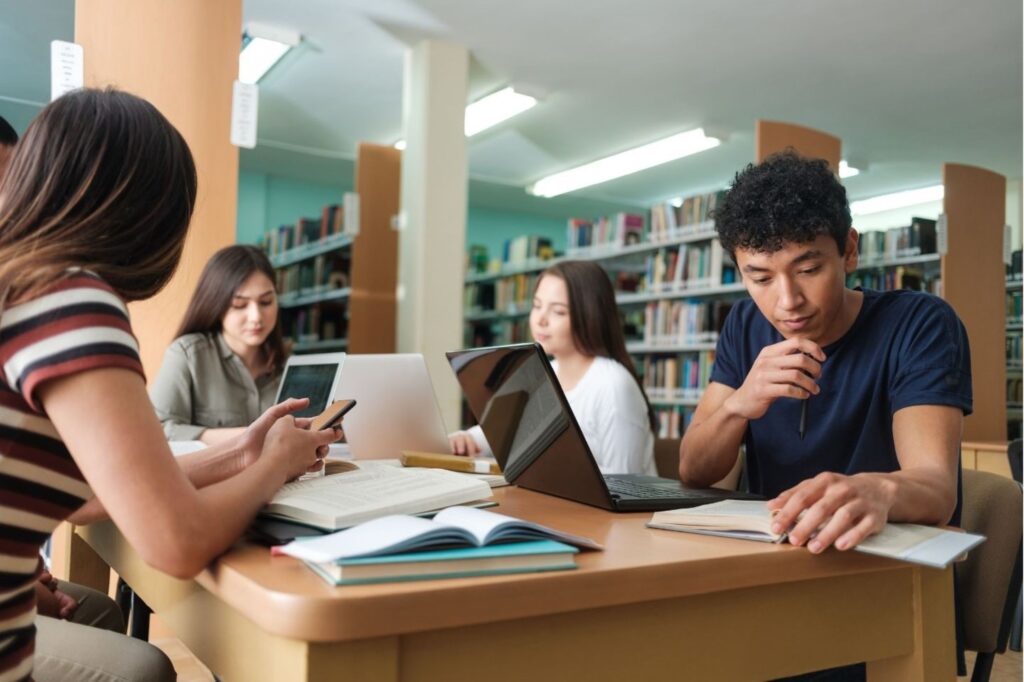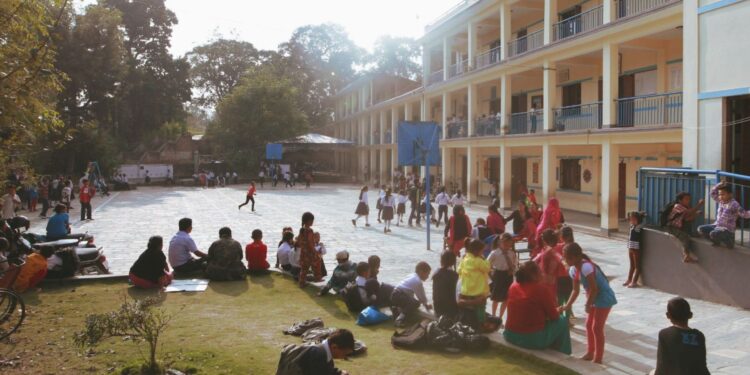Morocco’s Ministry of Education has introduced a new school break policy affecting students nationwide. Furthermore, the directive requires students to remain on campus during midday breaks and free periods. Moreover, this policy specifically targets the 12 p.m. to 2 p.m. window when many students cannot return home. Therefore, understanding this change helps parents and students prepare for the new academic routine. Additionally, the ministry emphasizes student safety as the primary motivation behind this decision. Indeed, supervised activities and designated spaces will support students during these extended campus hours. Consequently, families need clear information about how this policy impacts their daily schedules.
What Does the New School Break Policy Include?
The Ministry of Education issued a memo to regional and provincial officials preventing students from leaving school grounds between 12 p.m. and 2 p.m. First, the policy applies during midday breaks and empty class periods. Additionally, students must remain on campus in supervised areas with organized activities.
Moreover, Moroccan public schools typically run split schedules from 8 a.m. to 12 p.m. and 2 p.m. to 6 p.m. Furthermore, this two-hour midday gap previously left many students unsupervised outside school premises. For instance, students who live far from school or lack transportation faced particular challenges.
Meanwhile, the new policy aims to address safety concerns for these vulnerable students. Consequently, schools must now provide adequate supervision and activities during these hours. Thus, the school break policy represents a significant shift in Morocco’s education system operations.
Why Did Morocco Implement This School Break Policy?
The measure mainly targets students who cannot return home during breaks because of long distances or lack of transportation. First, many rural and urban students face significant commute challenges daily. Additionally, unsupervised students outside school grounds raised serious safety concerns.
Moreover, students spending breaks in streets or cafés encountered various risks unnecessarily. Furthermore, the ministry recognized that some families lack resources for students to commute home twice. For example, transportation costs and time make multiple daily trips impractical for many.
Meanwhile, keeping students on supervised campuses ensures their wellbeing throughout the school day. Consequently, the policy creates more equitable conditions for all students regardless of location. Thus, safety considerations drove this important school break policy change.

Real Perspectives from Moroccan Families
Fatima Benjelloun, Parent, Casablanca
“I worried constantly about my son during midday breaks before this policy. He couldn’t come home because we live 45 minutes from school. Instead, he wandered streets with friends which concerned me greatly. This new school break policy brings tremendous relief for our family. Now I know he stays supervised on campus with activities. Additionally, he uses the library for homework instead of wasting time. Our transportation costs decreased since one round trip suffices daily now. Furthermore, my son seems more focused because his day flows continuously. The policy may inconvenience some families but protects vulnerable students like mine. Indeed, safety should always come first in educational decisions.”
10 Profitable Small Business Ideas for 2026 in Morocco
Across Morocco, young entrepreneurs are reshaping the economy with creativity and purpose. With the rise of e-commerce, eco-awareness, and a...
Moroccan Crafts to Boost Creativity and Relaxation
In our fast-paced, digitally connected world, many people search for simple ways to slow down and find calm. Morocco’s rich...
7 Foods Every Moroccan Child Should Eat Daily
In Moroccan households, food is more than just nourishment, it’s a reflection of love, culture, and care. But in today’s...
Personal Branding in Morocco: Why It Matters More Than Ever
In today’s competitive job market and entrepreneurial landscape, personal branding has become more than just a buzzword, it’s a necessity....
What Challenges Does This Policy Present?
Schools must invest in infrastructure improvements to accommodate students during school break periods. First, adequate seating, climate control, and facilities become essential for comfort. Additionally, many schools lack sufficient space for all students simultaneously during breaks.
Moreover, staffing requirements increase when teachers and administrators must supervise midday hours. Furthermore, budget constraints may limit schools’ ability to provide quality activities and resources. For example, hiring additional staff or expanding facilities requires significant financial investment.
Meanwhile, some parents prefer their children coming home for family meals and rest. Consequently, this policy removes flexibility that worked well for certain families previously. Thus, balancing safety improvements with practical challenges remains an ongoing concern.

How Can Parents Support This Transition?
Parents should communicate openly with schools about their children’s needs during school break hours. First, inform teachers if your child has specific dietary, medical, or social requirements. Additionally, participate in parent committees discussing policy implementation at your school.
Moreover, pack nutritious lunches and snacks ensuring your child stays energized throughout extended days. Furthermore, encourage children to participate in supervised activities rather than sitting idle. For instance, library time, sports, or clubs make breaks productive and enjoyable.
Meanwhile, maintain regular communication with your child about their school break experiences daily. Indeed, student feedback helps schools improve supervision quality and activity offerings continuously. Thus, parent engagement strengthens this school break policy’s success for everyone involved.
Conclusion: Understanding Morocco’s School Break Policy
Morocco’s new school break policy prioritizes student safety during vulnerable midday hours significantly. The directive keeps students on supervised campuses rather than leaving them unprotected outside. Moreover, this change particularly benefits students facing transportation or distance challenges daily.
From designated spaces to organized activities, schools must adapt infrastructure and staffing accordingly. Additionally, parent cooperation and student feedback will shape successful implementation across Morocco. Therefore, understanding policy details helps families prepare for this educational system adjustment.
Furthermore, balancing safety improvements with practical considerations requires ongoing dialogue between stakeholders. Indeed, the ministry’s commitment to student wellbeing drives this important policy change. Stay informed through your school’s communications and participate actively in this transition process.
Questions about Morocco’s school break policy? Contact your regional education office or visit the Ministry of Education website for detailed implementation guidelines and resources for families.














Discussion about this post